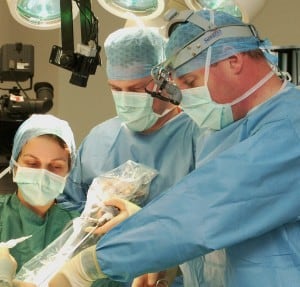Cosmetic Surgery Advice: “What to ask when picking a plastic or cosmetic surgeon”
 This article from USA Today provides a lot of valuable information that can help guide you on how to choose your surgeon. Dr. Pinsky believes that all questions must be answered when choosing a doctor to perform your cosmetic procedure.
This article from USA Today provides a lot of valuable information that can help guide you on how to choose your surgeon. Dr. Pinsky believes that all questions must be answered when choosing a doctor to perform your cosmetic procedure.
What to ask when picking a plastic or cosmetic surgeon
By Jayne O’Donnell, USA TODAY
With so many doctors doing cosmetic surgery, how can a consumer choose? Terms including “board-certified” and “specialist” are used by physicians of almost every type.
Here are questions to consider as you look for the right surgeon, according to experts, including the heads of the plastic surgery and cosmetic surgery groups.
What’s he or she board certified in?
The American Board of Plastic Surgery is the only cosmetic surgery board recognized by the American Board of Medical Specialties. ABMS certifies doctors in every other area of medicine.
Check certificationmatters.org to see if your doctor is board certified — and in what.
Certification by the American Board of Facial Plastic and Reconstructive Surgery is recognized as being ABMS-equivalent in all 50 states. Facial plastic surgery is a sub-specialty of otolaryngology (head and neck surgery), which has its own ABMS board.
How many times overall — and recently — has the doctor performed the type of surgery you are considering?
h2>
Board certification in plastic surgery will only get a doctor so far if, say, he’s been specializing in breast reconstruction surgery and decides to start doing facelifts.
Have they been disciplined by authorities?
The status of a doctor’s license can be found through state licensing boards. Go to the , photos about Federation of State Medical Boards Federation of State Medical Boards website, fsmb.org, to find the state and doctor you’re looking for. For a fee, FSMB will also provide a physician’s full profile, including disciplinary actions in other states.
Does the doctor have privileges to perform the procedure at a hospital?
h2>
This information can usually be found online on doctor’s licenses, depending on the state. If it’s not, ask the doctor. Even if the surgeon is doing the procedure at his or her office, hospital privileges mean the doctor can treat you in a hospital if complications arise. Hospitals have credentialing committees where panels of doctors screen other physicians to make sure someone is safe and should be allowed to operate there, says Miami plastic surgeon Adam Rubinstein.
Is the facility where the surgery is taking place accredited?
You want to go to a surgery center that has accreditation from one of the following: the American Association for Accreditation of Ambulatory Surgery Facilities (AAAASF), the Accreditation Association for Ambulatory Health Care (AAAHC) or the Joint Commission on Accreditation of Healthcare Organizations (JCAHO). Also, make sure the facility has a license issued by the state.
Who exactly is going to be performing the surgery?
Insist on speaking to the surgeon who would do your procedure before the day of your surgery.
If prices are far lower than competitors’, how can they charge so little?
Costs could be “cut in ways that might not be in the patients’ best interests,” says Rubinstein.
What do some of the doctor’s recent patients have to say?
While cosmetic surgery isn’t something many people are likely to brag about, ask friends you know have had surgery who they went to and whether they were happy. Word of mouth can be the best recommendation of all.
Contributing: Jeff Williamson